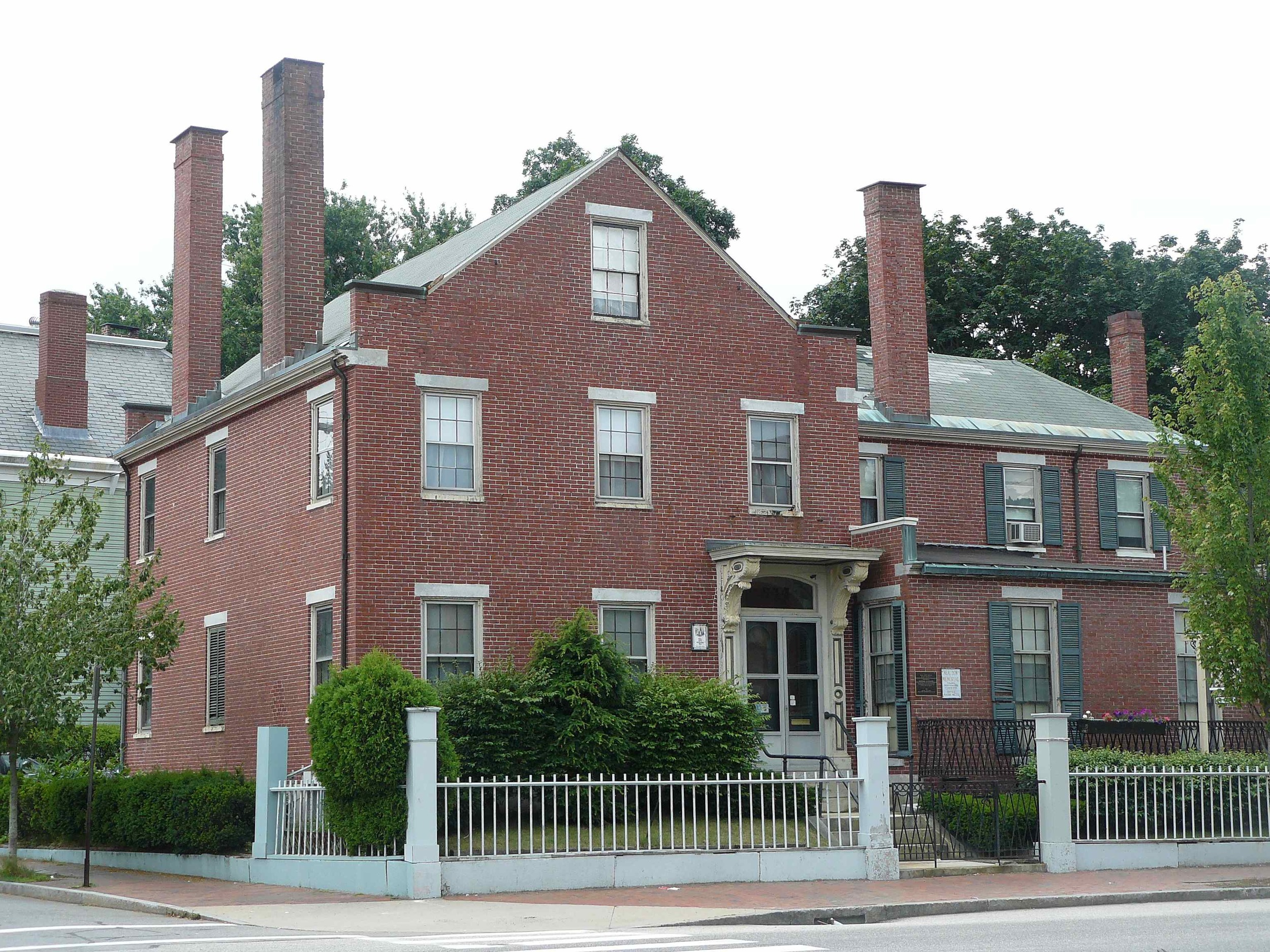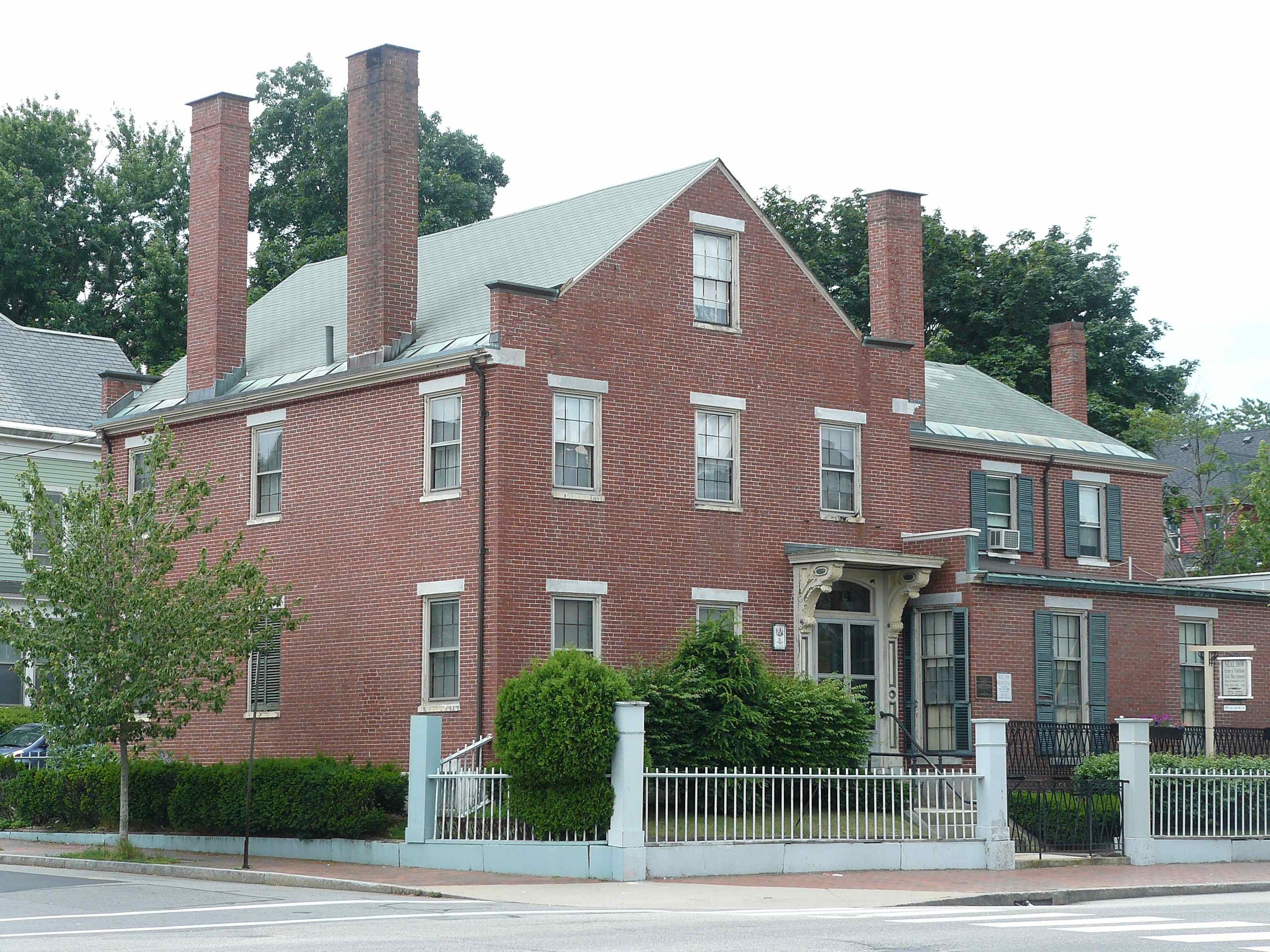Neal Dow House
714 Congress Street, Portland | Nominated to Places in Peril in 2013
The Issue
Built in 1829, the Neal Dow House at 714 Congress Street is a museum presenting the life and social contributions of Neal S. Dow and the headquarters of the Maine Woman’s Christian Temperance Union. Neal S. Dow (1840-1897) was a United States General, a leading Temperance advocate, Abolitionist, and prominent Republican political leader. Dow authored the "Maine Law", the first state act outlawing the sale and consumption of alcohol, which inspired similar legislation across the nation and resulted in the national implementation of Prohibition in 1920. Dow’s involvement in the Temperance movement catapulted him to international prominence, sparked his political career, and forever linked him with the history of American social reform. Dow’s family had a strong link to the Abolitionist movement, and provided refuge in the house for African-Americans who were fleeing slavery. In 1934, Dow’s son Fred gave the building to the Maine Woman’s Christian Temperance Union (WCTU) as its headquarters, to carry on the memory of his father and his work. The WCTU began in the early 1870s, focusing on social reform, especially the fight against alcohol consumption, which they saw as the major cause of poverty, family instability, and crime.
The Neal Dow House is a hidden gem that lacks visibility and is largely unknown to the public, despite its nationally significant ties to major movements in American History. While the owner, the Maine Woman’s Christian Temperance Union, has done a good job maintaining the house to date, like other house museums across the country, the museum cannot support its operating costs or capital needs with admissions revenue alone. The historic building needs a broader base of support to supplement the WCTU’s scarce resources.
Our Position
The Neal Dow House has national importance to the Temperance movement, the Abolitionist movement, women’s history, and Civil War history. The property is a local city of Portland landmark, is listed in the National Register of Historic Places, and was designated in 1973 as a National Historic Landmark, the highest national designation. The Maine WCTU continues to maintain the property, which is in good condition. While recent projects have been undertaken to make repairs to the roof and boiler, the WCTU does not have the capacity to fund the property’s long-term-capital needs.
Landmarks is working with various stakeholders to increase awareness of the historic significance of the house to attract new audiences and provide opportunities for educational programs and interpretation of the site. We urge the WCTU to create a separate nonprofit organization to support the historic building and museum to attract donors, grants, volunteers, and partnership organizations and to develop a sustainable operating strategy based on regional and national models.
Press
When Maine went dry Portland Press Herald
Portland group reviving a 'passion' for temperance Portland Press Herald
Quick Links
Prohibition: Neal Dow pbs.org
Neal Dow: Prophet of Prohibition Maine Public Broadcasting Network
An Era of Reform Mainehistory.org
What You Can Do
Sign up for our mailing list to receive updates on our advocacy efforts, educational programs, and upcoming events.
Support our advocacy efforts and our Places in Peril program by making a donation or becoming a member today.


